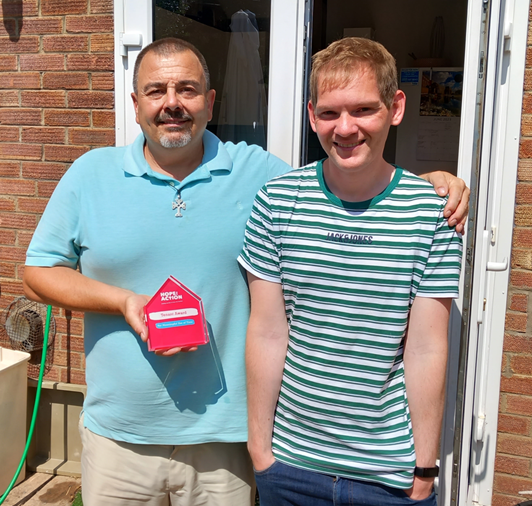CAN WE END HOMELESSNESS IN WALES?
Welsh Government is currently consulting on the White Paper on Ending Homelessness in Wales. It sets out a range of proposals which work towards the Welsh Government’s ambition to prioritise prevention and rapid rehousing, to make homelessness ‘brief, rare and unrepeated’. The proposals are based on the recommendations of an Expert Review Panel. While this legislation could be ‘world-leading’, there are likely to be substantial hurdles with its implementation. Wales led the UK in building prevention into statutory homelessness services and the White Paper has the ambition to take that further. Its principal proposals are:
- Ending the ‘priority need’ and ‘intentionally homeless’ tests, both of which have been used to limit the amount of help offered to some people. Abolishing them may simplify the process. It is likely that Local Authorities will have to offer more substantial assistance to a greater number of people, requiring them to purchase or build much-needed social housing.
- An ambition to improve standards in temporary accommodation, which is welcome as many individuals describe their experiences in such accommodation as being isolating and traumatic. However, Local Authorities will need significant investment and support to make this a reality, given that there are over 11,000 people currently in temporary accommodation, and the use of B&B accommodation is still very prevalent.
- The formalising of creative solutions to existing challenges in the homeless sector, such as ‘Homeless at Home’ whereby applicants for housing can stay with friends or family instead of in temporary accommodation without losing their access to the homelessness duty. This would ease some pressure on Local Authorities and allow households to maintain stability whilst looking for permanent accommodation.
- A new statutory duty to support an applicant to retain accommodation secured for them by a Local Authority is proposed. The experience of Cytûn member Housing Justice Cymru in the Citadel project shows that many individuals value support after moving into permanent accommodation and settling into a new community, which also helps to prevent repeated homelessness.
The proposals demonstrate Welsh Government’s commitment to realising their ambition to end homelessness, But that ambition must be supported by capital and revenue resources, and money is very tight at present. A key challenge will be the currently inadequate funding for the Housing Support Grant, which funds most homelessness and housing support services in Wales, and needs to increase to meet rising demand and costs. Local councils are cutting their services back, as budgets shrink: that is why Cytûn member the Salvation Army finds that its services are having to move from prevention to crisis response. While charities such as the Salvation Army can make up some of the shortfall from their own resources, there is a limit to how far that can go.
This illustrates the ongoing challenges with the White Paper’s ambition for more partnership working, the effects of which are more pronounced amid a cost-of-living crisis when services and resources are under greater strain than ever. The full consultation document is available here and responses are welcome until 16th January.

Meanwhile, local churches are keen to provide practical support for homeless people. As well as Housing Justice’s Citadel project (see page 1), churches can support their local Salvation Army. As a church and charity, The Salvation Army supports people in all kinds of need, through 36 local corps in Wales and specialist services. Demand for homelessness support is growing, and it seeks to meet that need through a wide variety of services across Wales – Lifehouses, floating support projects and outreach work. Crucially, as numbers of people both sleeping rough and in temporary accommodation rise, the Salvation Army increasingly has to focus on responding to crises, rather than working to prevent them. Families and single people are falling into financial difficulty, with greater numbers now needing support and temporary accommodation. Now more than ever they want to continue to help people to avoid losing their homes and find rapid exits out of homelessness.

The Salvation Army’s vision is ‘Fullness of life for all with Jesus’. Its homelessness services and corps work hard to deliver that in very practical ways. They are committed to helping wherever it is needed, and welcome the breadth and ambition of the White Paper. But these services need the resources to do the job.

Christian charity Hope into Action also offer ways to enable Churches to house the homeless. Their vision is to see every church providing a loving home for those affected by homelessness, and through that love seeing lives transformed.
Hope into Action’s model enables individuals or groups of people to invest in houses which they then lease and use to provide good quality homes. In this way, people can share their wealth with the poor. They currently have 110 homes in around 30 towns and cities across the UK, with more in the pipeline.

Hope into Action believes that the root cause of homelessness is often a poverty of relationships. People have no-where to go because they have no-one to go to, or they have unhealthy relationships with people or substances. By providing safe homes and fostering positive relationships, they empower tenants with hope for change. Tenants are provided with professional support through an ‘Empowerment Worker’ and mentoring, friendship and community through volunteers from the local church.
Hope into Action provides opportunities for churches to engage meaningfully with those in vulnerable situations. They say, “We don’t impose our faith, but we do believe in the transformative influence of a loving relationship with a heavenly Father. We work with churches of various traditions, fostering Christian unity amid diversity. Close partnership with local churches is at the heart of Hope into Action’s model. The relational support offered by the church is critical.”
Hope into Action can be contacted at info@hopeintoaction.org.uk
Many thanks to Housing Justice Cymru, the Salvation Army and Hope into Action for their contributions to this feature.
Digital Confidence, Health and Well-Being for churches

Digital Communities Wales (DCW) exists to reduce digital exclusion in Wales. The aim is a Wales where everyone has the skills, access, and motivation to be a confident user of digital technology. DCW is a Welsh Government funded programme which is delivered by Cwmpas. It provides support to organisations and communities to help them embed digital inclusion into their strategies and practices. Cytûn is represented on Digital Inclusion Alliance Wales by Revd Aled Davies.
DCW is keen to support and have conversations with churches and explore how they can support staff and volunteers with their digital skills and needs, so that people can use digital technology and the internet to benefit their lives in some way and support fellow worshippers at the same time. A wide range of training sessions are available, including important topics around ‘Online Safety’ and able support with the more foundation skills. In addition, the digital skills audit is a way a church can identify where they are in their digital inclusion journey. Through this audit, further training support can be identified and recommended.
For more information about digital inclusion support in Wales, support, or even just a chat, please get in contact via mohammed.basit@cwmpas.coop or 07824 035880.
Faith security training for churches
The Home Office has announced the launch of piloting for its Faith Security Training project. Developed by the Home Office, in consultation with security and policing partners, this will be a free learning resource for faith communities, raising awareness of security risks and how to respond to them.
The Home Office is ready to start piloting face-to-face sessions, and would welcome members of faith communities, particularly people in positions of leadership or responsibility for security at places of worship, to attend and provide feedback on the content and delivery. Participating in the pilot will give the chance to contribute your expertise and materially shape the project, ensuring it is as effective as it can be at helping keep communities safe when the project is rolled out.
The locations of pilot sessions will be dependent on interest and uptake, so we encourage you to register your interest regardless of where you are. Each day will host between 6-8 participants, last roughly six hours, and be delivered in a safe, accessible, and welcoming environment. This training will also be available digitally at a later date.

If you are interested in attending one of the pilot sessions, please complete the expression of interest form here, or on a mobile device scan the QR code and populate your details. The data you provide during registration will be collected by the Home Office’s delivery partner, CDS. The information CDS collects will not be shared with third parties. Alternatively, if you would like to speak with someone directly then please contact 03301 75 69 62 or email FaithSecurityBooking@cdsds.uk.
The training will help places of worship to prepare for the introduction of new duties under the proposed Terrorism (Protection of Premises) Bill (‘Martyn’s Law’) The King’s Speech in November confirmed that this Bill will be introduced during the current session of the UK Parliament, following further consultation with places of worship and community venues, designed to ensure that the duties imposed on these places are not too onerous. Cytûn is in contact with the Home Office, and will enable our members to respond to the new consultation in due course.
The Community Security Trust also offers free webinars on faith security issues. Details can be found on CST’s Zoom Hub HERE or on: LinkedIn: safe-by-cst; X (formerly Twitter): @SAFE_CST; or Facebook: SAFE by CST
COP 28 GLOBAL DAY OF ACTION, 9 DECEMBER

From November 30 – December 12, world leaders will be gathering for the COP28 climate summit hosted and presided over by the United Arab Emirates. After the hottest summer on record and changes to UK Government’s climate commitments, all those who care about the climate crisis are taking this opportunity to come together and attempt to change the narrative.
On Saturday December 9, mobilisations will take place around the world in a global day of action for climate justice using the slogan #NowWeRise.
Christian Aid is inviting people to join them at 11am on Saturday 9 December at Tabernacl, The Hayes, Cardiff, CF10 1AJ, for a short service and an opportunity to pray for the COP28 negotiations. They are inviting supporters to create their own placards. Prayers and placard resources can be downloaded here: Campaign for Climate Justice – Christian Aid. If you are planning to attend, or if you’d like more information, please email JWeaver@christian-aid.org
Events are also planned on the same day in Bangor (outside Pontio LL57 2TQ at 2.30pm), Aberystwyth (at the Bandstand SY23 2NN at 11am), Swansea (Castle Square SA1 3PP at 12noon). An interactive map of all events can be found here.
Welsh Government is once again organising Wales Climate Week to coincide with COP28 with live and recorded webinars on December 4-8. This will be followed by a programme of Climate Conversations until 31 January 2024, which will aim to encourage discussion and response to the Welsh Government’s Just Transition Framework, which will be published during Wales Climate Week. Cytûn has been involved in discussions about this framework through Climate Cymru, of which we are members.
Churches caring for the environment

A growing number of churches host repair cafes, which offer repair of many common items which might otherwise be thrown away – thus reducing waste, sharing skills and bringing the community together. The network for Repair Cafes is https://repaircafewales.org/ where you can find your nearest repair café, or who to contact if you would like to start one.

A similar project – sometimes run separately or in other cases alongside a repair café – is a library of things. This is just like a book library but for things that you don’t use very often, don’t have space for or can’t afford. Items available to borrow include gardening and DIY tools, camping equipment and much more. Each library will have its own set of things to borrow, all available at less than you’d expect to pay second hand and with the opportunity to pay with time instead of money. The network for libraries of things is Benthyg Cymru https://www.benthyg-cymru.org/ We would encourage churches to consider partnering with others in the community to establish such projects, or to support those which already exist.
On 28 November, the Senedd approved the regulations for the new arrangements (from April 2024) for recycling by all non-domestic premises, including churches, in Wales. These involve separation of waste into six separate containers (seven including non-recyclable waste). Although such plans have been abandoned in England, they are proceeding in Wales. A separate set of regulations will prohibit the discharge of food into the public sewer – including the use of macerators and similar equipment. Cytûn has prepared a briefing for churches which is available on our website.
WELL-BEING IN WALES – PRESENT AND FUTURE
Recent weeks have seen the publication of two reports which, from different perspectives, offer insights into the well-being of people in Wales.
Carnegie UK has attempted to measure the collective wellbeing of the people of Wales as part of its Life in the UK index. Produced in partnership with Ipsos, it measures the wellbeing of the people of the UK by examining answers to questions across social, environmental, economic, and democratic themes. This research, based on a survey of more than 6900 people including 531 people in Wales, finds:
- People in Wales living in the most deprived areas have lower wellbeing. For example, they have environmental wellbeing scores 15 points below those in the least deprived areas (57 out of 100 compared to 72 out of 100). A larger proportion of people in Wales (32%) are dissatisfied with job opportunities locally, when compared to the UK average (23%).
- In a similar pattern to the rest of the UK, the research reveals a lack of trust in political systems and institutions. Three quarters (75%) of respondents in Wales feel that they do not have influence over decisions affecting the UK; two thirds (67%) feel the same about Wales-wide decisions; while over half (56%) feel they do not have influence over decisions affecting their local area.
The Equality and Human Rights Commission has launched its latest Is Wales Fairer? report. In a departure from earlier editions, the 2023 report is divided into a chapter for each ‘protected characteristic’ under the Equality Act 2010. The chapter on ‘Religion and Belief’ notes that Wales-specific data in this field are sadly lacking. The key findings in this chapter are:
- People in religious minorities (that is all religions other than Christianity) are less likely to be employed than those with no religious affiliation, with an employment rate of 52.2% compared to 65.9% for the No Religion group.
- Poverty rates increased in Christian headed households from 15.0% in 2011/12 to 20.2% in 2018/19, which has narrowed the poverty gap with the No Religion group.
- Christians are most likely to live in owner-occupied households while Muslims are most likely to live in privately rented or social housing. Muslims also experience the highest rate of overcrowding, as 14.2% of Muslim-headed households were overcrowded in 2021.
- There has been a decline in all groups reporting good health in Wales between 2016 and 2019, with greater decline for religious minorities (-6.7percentage points).
- The number of racially or religiously aggravated offences recorded by the police has increased but the proportion of offences resulting in a charge has decreased.

This mixed picture for well-being in Wales is striking, in that Wales has led the UK with the groundbreaking Well-Being of Future Generations Act, designed to put wellbeing at the heart of decision-making. It is timely, therefore, that Wales’s second Commissioner for the Well-Being of Future Generations, Derek Walker, has launched his new strategy, Cymru Can. Over the last seven months, the Commissioner and his team have involved more than 1,400 people across the country to inform Our Future Focus for the next seven years. As a result, Mr Walker has set out five missions to say “Cymru Can” use this ground-breaking legislation to lead the way in thinking and acting long-term. These are:
- Implementation and Impact: Ensuring the Act is applied effectively and with ambition in a way that improves the lives of the people of Wales now and in the future.
- Climate and Nature: Ensuring that all Welsh public bodies achieve their net zero and nature positive goals by 2030, in a way that reduces inequalities and maximises the benefits to people and communities across Wales.
- Health and Well-being: Facilitating a transformation in the way we keep people healthy, with a greater focus on prevention and the long term, so that public bodies are working together to tackle the root causes of ill health and addressing health inequalities.
- Culture and Welsh Language: Reinforcing the positive impact of cultural well-being, so that public bodies are making the urgent changes needed to promote culture and creativity, enhance the fabric of communities and promote multi-culturalism and the Welsh language.
- A Well-being economy: Help transition Wales to an economy that puts people and planet first, with governments at all levels, communities and business making this happen.
Cytûn will continue to work with the Future Generations Commissioner and the Equality and Human Rights Commission to help enhance the well-being of all people in Wales, with a particular regard to the well-being of Christian and other religious people, and to the contribution which faith conviction can make to realising these goals.
SCHOOL HOLIDAY CHANGES – WHAT ABOUT EASTER?
The Welsh Government are seeking views on proposals to amend the dates of the school terms in Wales so that the three terms are more equal in length. The Welsh Government says “We want the school calendar to be better aligned with life in the 21st century and to help us to address disadvantage, reduce educational inequalities and support learner and staff well-being. “
The consultation started on 21 November 2023 and will be open until 12 February 2024. The two major changes considered in the consultation, to be implemented in the 2025/26 school year are:
- Extend the October half-term holidays to two weeks and shorten the summer holidays by 1 week. This would mean schools not being on holiday during Royal Welsh Show week.
- The flexibility to disconnect the spring holidays from the Easter public holiday weekend. Good Friday and Easter Monday public holidays would continue (as the designation of public holidays is not devolved to Wales). The Easter public holiday weekend would land outside the school holiday approximately twice every ten years.
It is this second suggestion about which churches will be most concerned. On the one hand, it will mean in some years that Church in Wales and Catholic Church schools will not be able to carry out their usual Holy Week activities because schools will be closed. On the other hand, in other years it would not be possible for children and their families to attend Christian festivals such as Spring Harvest or Llanw held in the week after Easter Sunday, as they would be expected to be at school. Some will also see the change as a sign of further secularisation of our society.
The Welsh Government is also seeking views on further possible changes that could be introduced in due course. Among these are extending and, if necessary, moving the May half-term holidays, and shortening the summer holidays by a further week as a result (meaning that holidays would the summer is four weeks long); and moving the GCSE exam results day to the same week as the AS/A level exam results day.
We know that many churches and individuals will want to take part in the consultation. Cytûn has already been in conversation with the Welsh Government, and it would be a great help if we could receive a copy of any response you send, so that we can understand the views of our members.
CONTACTING CYTÛN’S POLICY OFFICER
Parch./Revd Gethin Rhys – Swyddog Polisi/Policy Officer
Cytûn – Eglwysi ynghyd yng Nghymru/Churches together in Wales
Registered office: Room 3.3, Hastings House, Fitzalan Court, Cardiff CF24 0BL
Mobile: 07889 858062
E-mail: gethin@cytun.cymru
www.cytun.co.uk @CytunNew www.facebook.com/CytunNew
Hapus i gyfathrebu yn Gymraeg ac yn Saesneg.
Happy to communicate in Welsh and English
Cytûn is a registered company in England and Wales | Number: 05853982 | Registered name: “Cytûn: Eglwysi Ynghyd yng Nghymru/Churches Together in Wales Limited” |
Cytûn is a registered charity | Number: 1117071
Publication date: November 29 2023. The next Bulletin will be published on January 31 2024.
